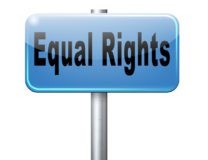1.) Unlawful HIV Medical Inquiry Case
Diallo’s of Houston, a Houston-area nightclub and party venue, will pay $139,366 and furnish other relief as a result of an EEOC disability discrimination lawsuit.
In its lawsuit, EEOC charged that Diallo’s violated federal law when it forced employee Felicia M. Parks to provide medical documentation to prove she was not HIV-positive, and then fired her when she failed to provide such documentation. EEOC charged that Diallo’s owner/manager approached Parks and informed her that she had “heard” from an unidentified third party that Parks was HIV-positive. The owner/manager twice demanded that Parks provide documentation to show she was not HIV-positive, based only on the owner/manager’s assumption that Parks’ HIV status was hazardous to the company’s business. The owner/manager then fired Parks when she did not provide the required documentation.
Such alleged conduct violates the Americans with Disabilities Act (ADA). EEOC filed its lawsuit in U.S. District Court for the Southern District of Texas, Houston Division against Diallo’s Entertainment, Inc. dba Diallo’s of Houston (Civil Action No. 4:16-cv-02909) after first attempting to reach a pre-litigation settlement through its conciliation process.
On Dec. 29, 2016, Judge David Hittner entered default judgment against Diallo’s. EEOC was granted judgment following its presentation of evidence in court, and obtained an award for the affected employee of $139,366. The court awarded all the relief sought by EEOC, including $89,366 in back pay and other pecuniary losses to Parks, plus compensatory damages for her mental pain and suffering and punitive damages totaling an additional $50,000. The court also granted EEOC’s requested injunctive relief prohibiting Diallo’s from engaging in future disability discrimination, and ordered that the nightclub institute policies, practices and programs to ensure equal employment opportunities for qualified persons with disabilities. The court also awarded EEOC its court costs.
WorkSaver Note:
Quoting EEOC’s regional attorney in Houston, Rudy Sustaita:
“It is a violation of federal law to make a disability-related inquiry unrelated to the employee’s job requirements or to any legitimate business necessity,”
Quoting EEOC Senior Trial Attorney Connie Wilhite Gatlin:
“Employers may no longer rely on outdated and meritless assumptions about HIV to discriminate against employees. A demand for disability-related information without any legitimate reason is simply illegal.”
2. Sex and Disability Discrimination
Carolina Creek Christian Camp, Inc. (CCCC) demoted a worker because of her pregnancy and related medical issues, and then fired her and sued her twice after she stood up for her rights, the U.S. Equal Employment Opportunity Commission (EEOC) alleged in a lawsuit that it filed against CCCC.
According to EEOC’s suit, around February 2014, within a week of learning that Registrar Korrie Reed had developed gestational diabetes during her pregnancy, CCCC involuntarily removed her from her position “predominately because of” her “medical condition,” as stated in writing by CCCC. CCCC reasoned that the demotion was triggered by “her need to medically take care of herself and the baby.”
When Ms. Reed returned from maternity leave, she was moved to a different department, and placed in another subordinate position. On several occasions, Ms. Reed expressed to the CCCC Executive Director that she viewed her demotion from Registrar to be illegal and discriminatory. After she expressed this sentiment again in early January 2015, CCCC on January 9, 2015, fired Reed.
After Reed filed an EEOC charge of discrimination in January 2015 and hired an attorney, CCCC sued Reed on February 3, 2015. After the proceedings in that lawsuit were paused, CCCC sued Reed again in Summer 2015. EEOC contends that the lawsuits filed against Reed, and her firing, unlawfully retaliated against Reed for exercising her rights protected by Title VII of the Civil Rights Act of 1964, which prohibits discrimination based on sex (including pregnancy), and the Americans with Disabilities Act of 1990, which prohibits discrimination against qualified individuals with disabilities.
EEOC filed suit in U.S. District Court for the Southern District of Texas, Houston Division (Civil Action No. 4:16-cv-03714), after first attempting to reach a voluntary pre-litigation settlement through its conciliation process. The federal agency sought a permanent injunction prohibiting CCCC from engaging in sex discrimination, disability discrimination, and retaliation. The EEOC is also sought back pay on behalf of Ms. Reed, and compensatory and punitive damages and other relief on her behalf, including re-instatement to her position at CCCC.
WorkSaver Notes:
Quoting EEOC’s Houston District Director Rayford O. Irvin:
“As in this case, when a worker is pregnant or has a medical condition that the employer views as a disability, but the employee is qualified to continue performing the job, an employer’s unfounded fears and biases are not valid excuses to deny equal employment opportunities,” said
Quoting EEOC’s Houston Regional Attorney Rudy Sustaita:
“This lawsuit will send a message to employers that the EEOC will vigorously enforce federal law. We will prosecute companies which deny equal opportunity, and which sue employees — with no basis — to punish them for standing up for their rights.”
For more information on how WorkSaver Employee Testing Systems legally designs highly effective post-offer, pre-placement examinations for new hires and fit-for-duty examinations for return to work cases, please call Dr. Richard Bunch (CEO) or Trevor Bardarson (President) at (800) 414-2174 or visit our WorkSaver web site at www.worksaversystems.com.

